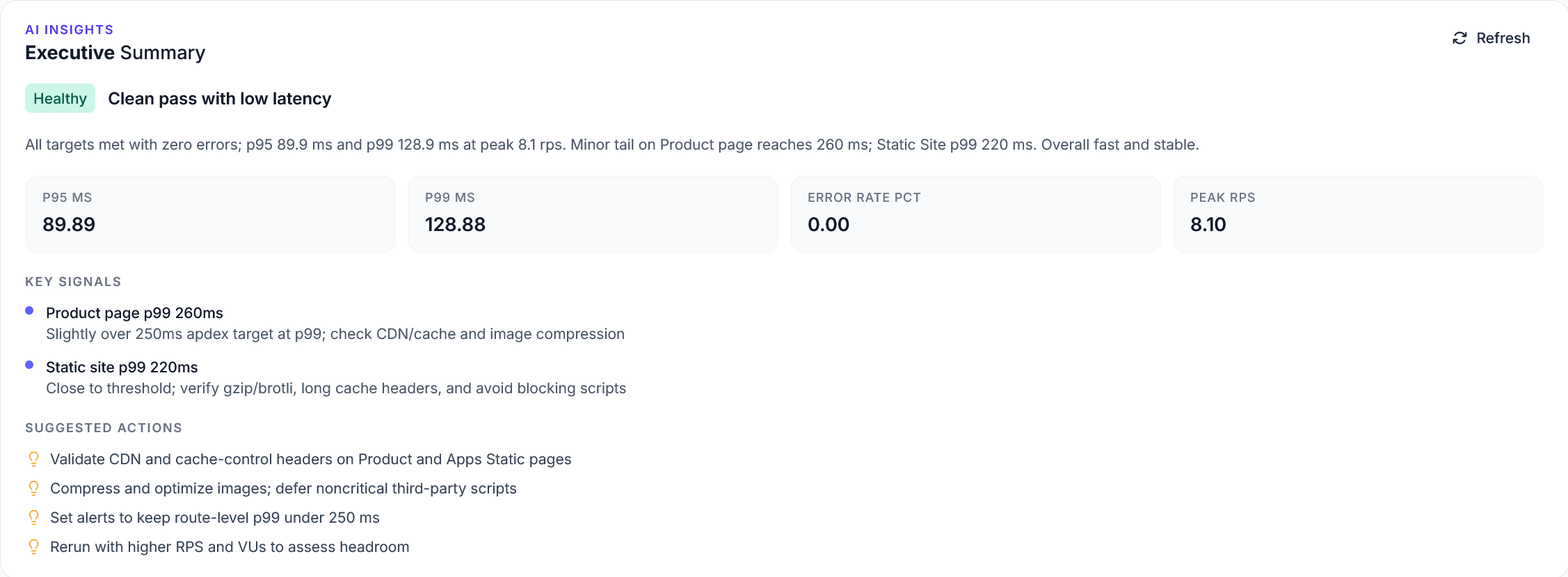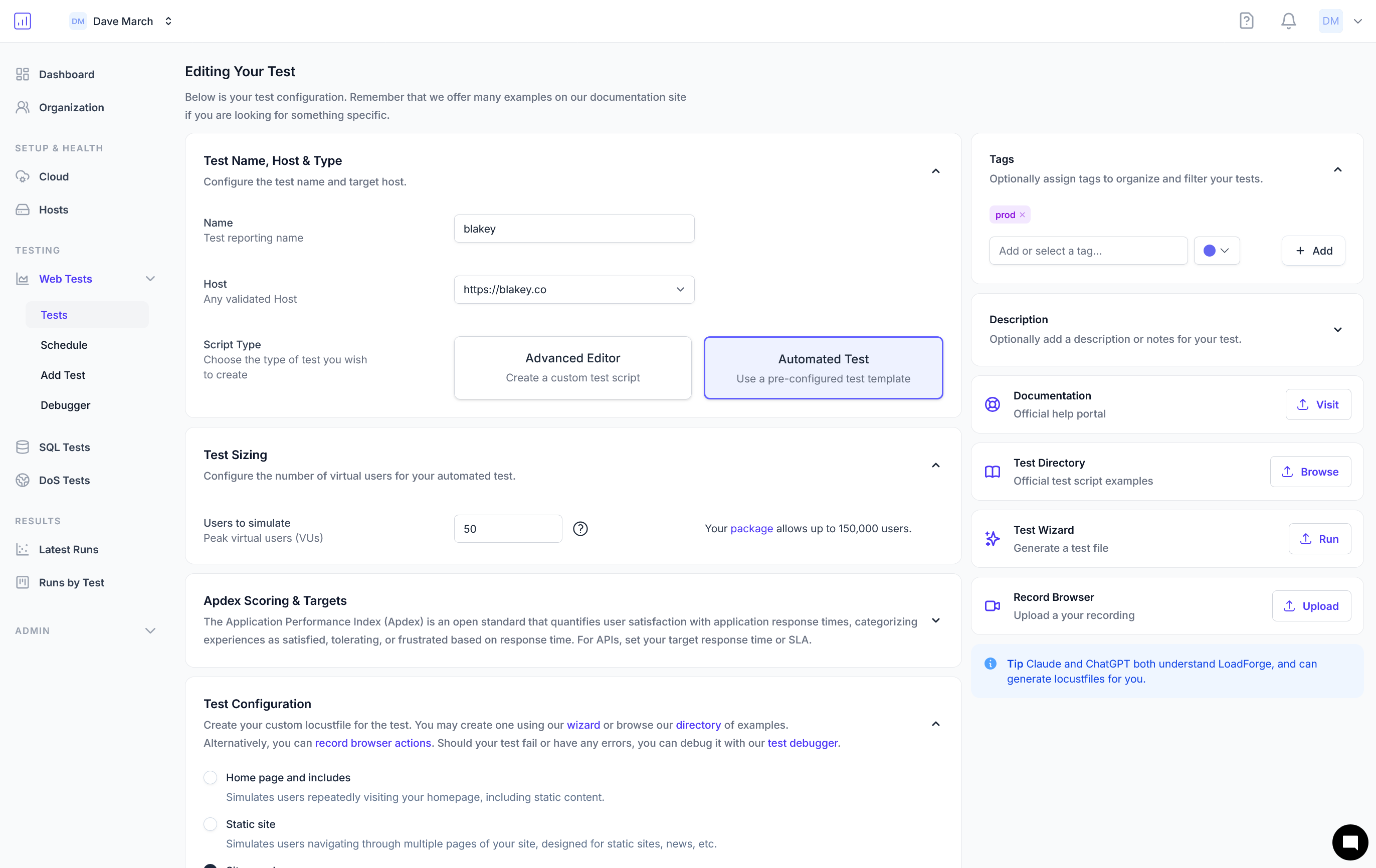
Explorer reports addition
We have added a new Explorer feature to reports, with a timeline scrubber and easy anomaly detection.
Load test static sites and resources automatically with crawlers.
Flexible testing including login, state, csrf and more for apps/APIs.
Flexible Python API testing, with wizards or python scripts.
Test posts, categories, content and more automatically.
Test your online store, products, checkout and more.
Load test your Prestashop ecommerce site at scale.
Test your Joomla site and components.
Load test your Drupal website, CMS, and modules.
Load test dynamic NextJS sites with ease.
Test React applications, components and APIs.
Test any REST API platform, with the most scalable testing platform.
Fully test GraphQL APIs at scale, from multiple locations.
LoadForge can test any HTTP/S website, API, or application. Learn more →
The #1 rated website load testing solution, learn why.
Test up to 4,000,000 concurrent virtual users on the largest platform.
Script a perfect test, or upload a swagger and start immediately.
Simple, but detailed reports on your sites performance.
Monitor Web Vitals, Lighthouse, and response times to improve SEO.
Test real user experience with Chrome browsers and Core Web Vitals.

We have added a new Explorer feature to reports, with a timeline scrubber and easy anomaly detection.

We have introduced a new AI executive summary on the Summary page of Run reports for all our clients.
TLDR: New updates include a tagging system for load tests, run ownership identification, description fields for web tests, and an automated test system offering pre-made scripts for basic functionality testing.

We've got a heap of new updates for you, focused on multi-user organizations and easier test creation.
We have added a tagging system for Tests, allowing you to attach any number of tags to your load tests. You can then filter on them, both on the test management page and the run results page.
We've added a user field to runs, so you can see who started a run on the Run list.
You can keep arbitrary notes and descriptions on any Web Test in the new Description field.
You can now choose between the normal advanced editor, and the automated test system. A simplified version of tests that provides several pre-made test scripts to test basic functionality on a variety of apps.
LoadForge Team
The LoadForge Team